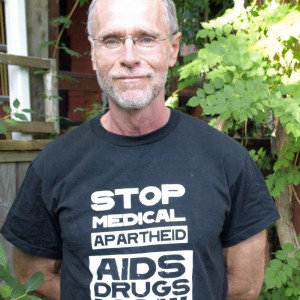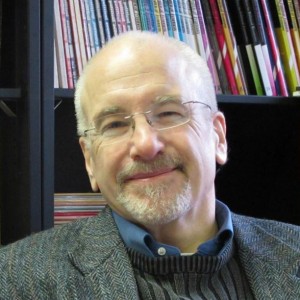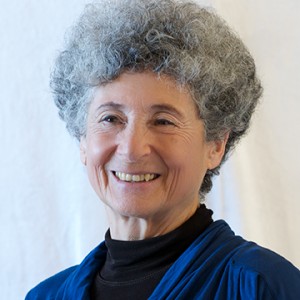-
Jane E. McArthur
Jane E. McArthur is a PhD candidate in sociology/social justice at the University of Windsor. Her dissertation research focuses on the understandings and strategies women workers have of risks for breast cancer in their working environments. The focus of Jane’s work outside her dissertation has been community-based environmental and occupational health research, education, communication, and advocacy. She is a mother of two school-age children and together they participate in the local climate justice movement.
-

Tim McCaskell
From 1974 to 1986 Tim McCaskell was a member of the collective that ran The Body Politic, Canada’s iconic gay liberation journal. He was a founding member of AIDS ACTION NOW!, and a spokesperson for Queers Against Israeli Apartheid. He is the author of Race to Equity: Disrupting Educational Inequality.
-
Alexander McClelland
Alexander McClelland is a sociolegal researcher and Banting Postdoctoral Fellow at the University of Ottawa in the Department of Criminology. He is currently examining issues of confidentiality for research with criminalized people. His work focuses on the intersections of life, law, and disease, where he has developed a range of collaborative and interdisciplinary writing, academic, activist, and artistic projects to address issues of criminalization, sexual autonomy, surveillance, drug liberation, and the construction of knowledge on HIV.
-
Iain McIntyre
Iain McIntyre is a Melbourne-based historian, musician, and community radio broadcaster who has written a variety of books about activism, culture, and music. Recent publications include Dangerous Visions and New Worlds: Radical Science Fiction, 1950 to 1986; Environmental Blockades: Obstructive Direct Action and the History of the Environmental Movement; and On The Fly!: Hobo Literature and Songs, 1879-1941.
-

Ian McKay
Ian McKay is the L.R. Wilson Chair in Canadian History at McMaster University and the author of the award-winning Reasoning Otherwise: Leftists and the People’s Enlightenment in Canada, 1890–1920 and the co-author of Warrior Nation: Rebranding Canada in the Age of Anxiety.
-
Bill McKibben
Bill McKibben is an author and environmentalist who in 2014 was awarded the Right Livelihood Prize, sometimes called the “alternative Nobel.” His 1989 book The End of Nature is regarded as the first book for a general audience about climate change and has appeared in twenty-four languages. He’s gone on to write a dozen more books. He is a founder of 350.org, the first planet-wide, grassroots climate change movement, which has organized twenty thousand rallies around the world in every country save North Korea, spearheaded the resistance to the Keystone Pipeline, and launched the fast-growing fossil fuel divestment movement.
-
Trevor Mckilligan
Trevor Mckilligan (illustrator) has lived in Vancouver since 2001. He has been a participant in many grassroots projects in East Vancouver. His preferred weapon is black ink.
-
Katherine McKittrick
Katherine McKittrick lives in Toronto, Ontario, and teaches gender studies, critical race studies, and indigenous studies at Queen’s University in Kingston, Ontario. She is the author of Demonic Grounds: Black Women and the Cartographies of Struggle, and is also researching the writings of Sylvia Wynter.
-
David McNally
David McNally is a professor of political science at York University and author of Global Slump: The Economics and Politics of Crisis and Resistance.
-
Daniel McNeil
Daniel McNeil is a professor in the department of history at Queen’s University and the Queen’s national scholar chair in Black studies. His scholarship and teaching in Black Atlantic studies explore how movement, travel, and relocation have transformed and boosted creative development, the writing of cultural history, and the calculation of political choices. He is the author of Sex and Race in the Black Atlantic (Routledge, 2010) and, with Yana Meerzon and David Dean, a co-editor of Migration and Stereotypes in Performance and Culture (Palgrave Macmillan, 2020). He lives in Tkaronto/Toronto.
-
Zoë Meleo-Erwin
Zoë Meleo-Erwin is a sociologist specializing in qualitative data collection methods with over a decade of experience. In January (of 2022) she left academia to begin a position in tech as a UX researcher at a major global tech company. Prior to this, Zoë was an assistant professor of Public Health at William Paterson University. Zoë’s academic subject areas of expertise pertained to the relationship between social media and health-related thoughts, beliefs, behaviors, identities, and communities and the interrelationship between different levels of influence. While in academia she published a number of manuscripts and presented nationally as well as internationally on these topics, a list of which can be found at www.zoemeleoerwin.com.
-
Wendy Mendez
Wendy Mendez is a Guatemalan theatre artist, educator, and political activist. In the late 1990s, Mendez cofounded the Guatemalan section of HIJOS, an acronym (which spells “children” in Spanish) for Sons and Daughters for Identity and Justice against Oblivion and Silence.
-

Karen Messing
Karen Messing is professor emerita in ergonomics at the Université du Québec à Montréal. She collaborates with labour unions and women’s groups to ensure women workers’ needs are addressed in occupational health and safety practice. Author of Pain and Prejudice: What Science Can Learn about Work from the People Who Do It (Between the Lines, 2014), also published in French, Korean, and German. Officer of the Order of Canada; recipient of Governor General’s Award in Commemoration of the Persons Case.
-
Sean Mills
Sean Mills is a Postdoctoral Fellow in the Department of History at the University of Wisconsin-Madison.
-
Susana P. Miranda
Susana P. Miranda is an independent scholar with a PhD in history from York University. The author of scholarly articles on Portuguese cleaners in Toronto, she currently works for the Ontario Ministry of Education and the Ministry of Colleges and Universities. A public historian, she is co-founder of the Portuguese Canadian History Project, which collects, preserves, and disseminates material related to the Portuguese in Canada. She lives in Toronto.
